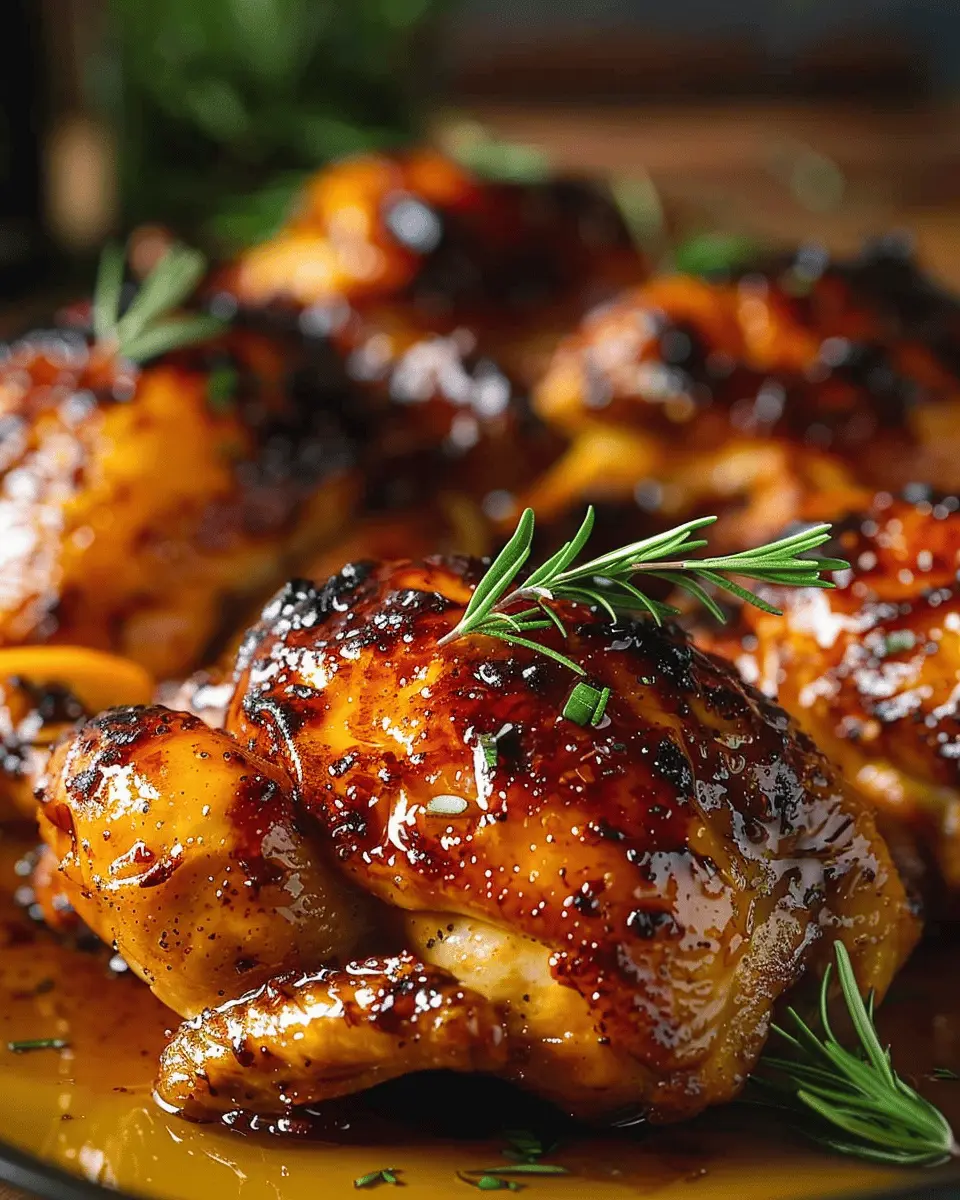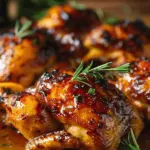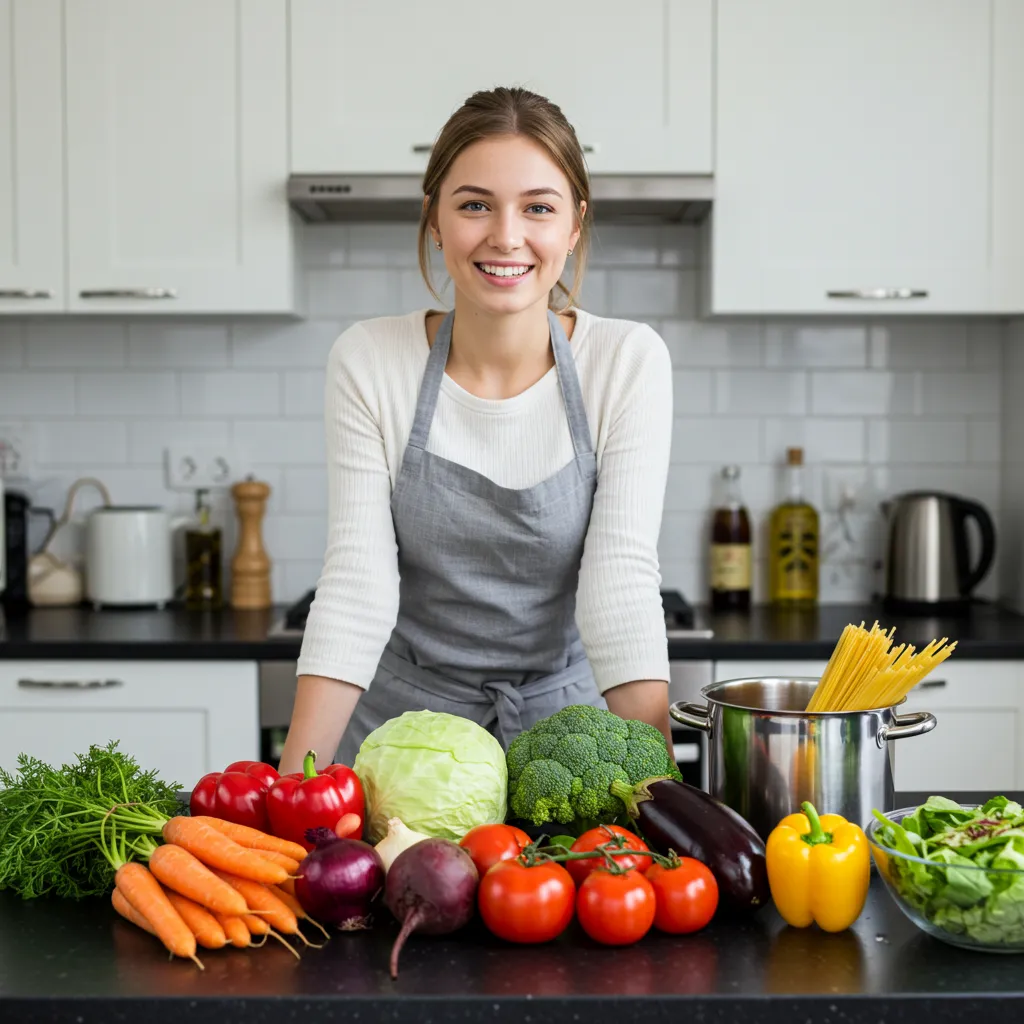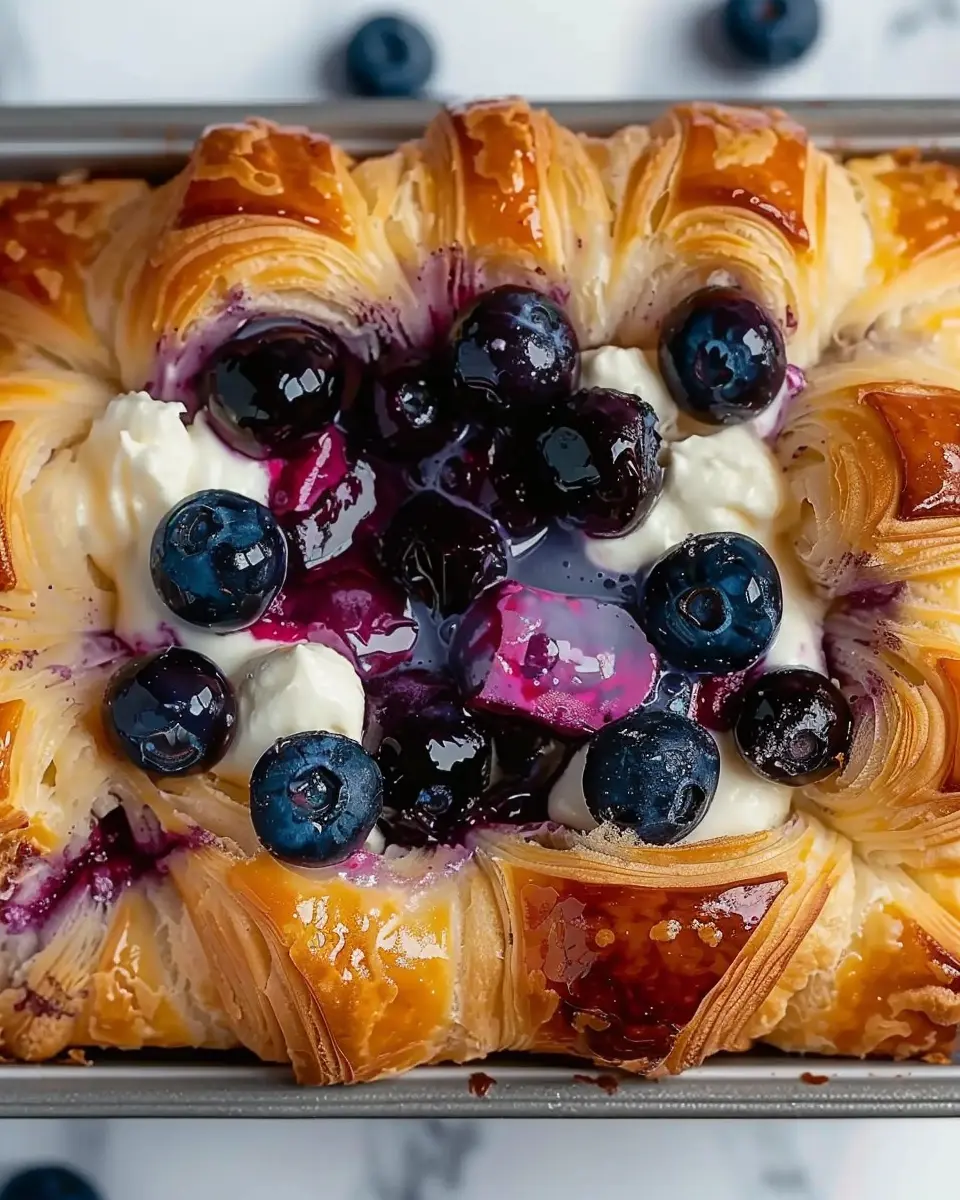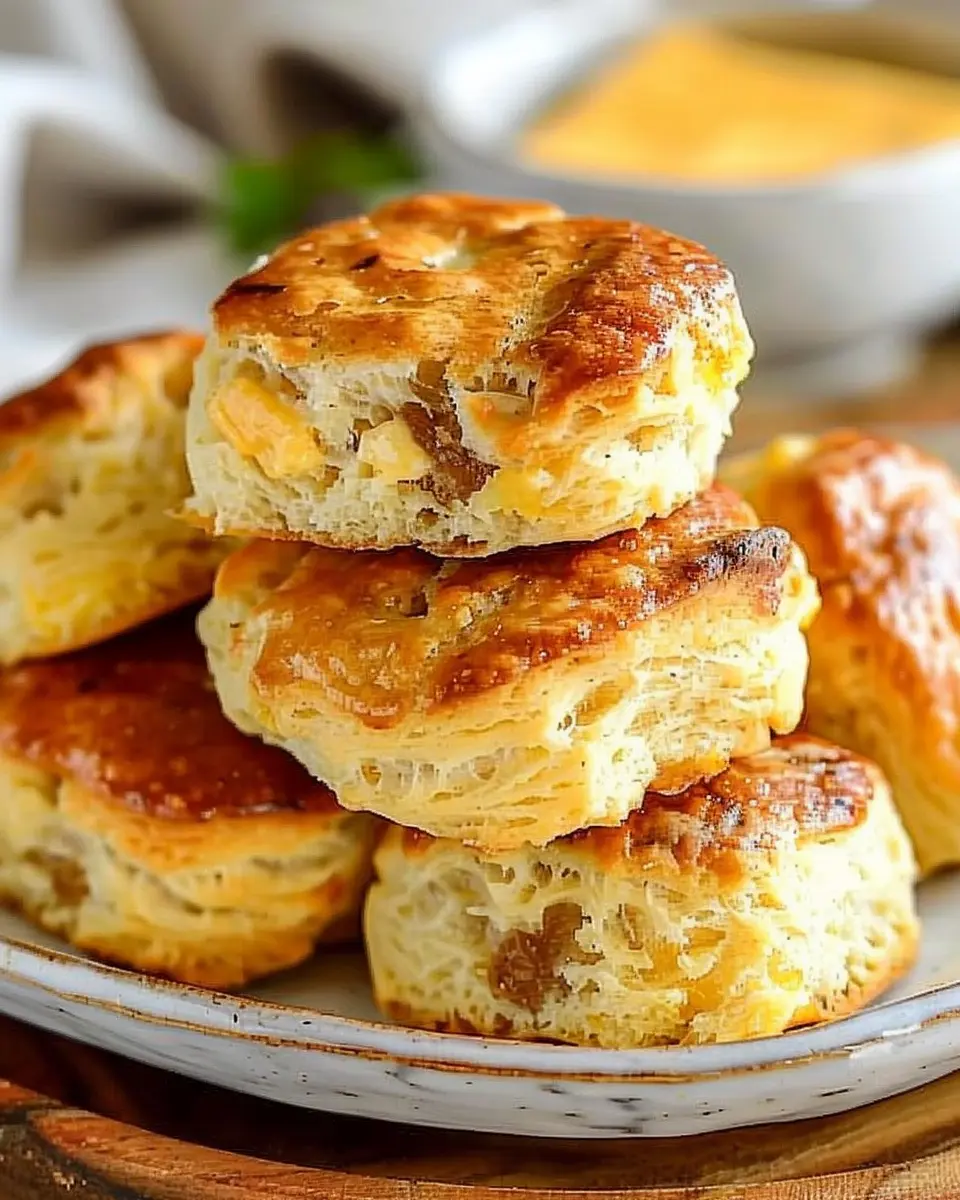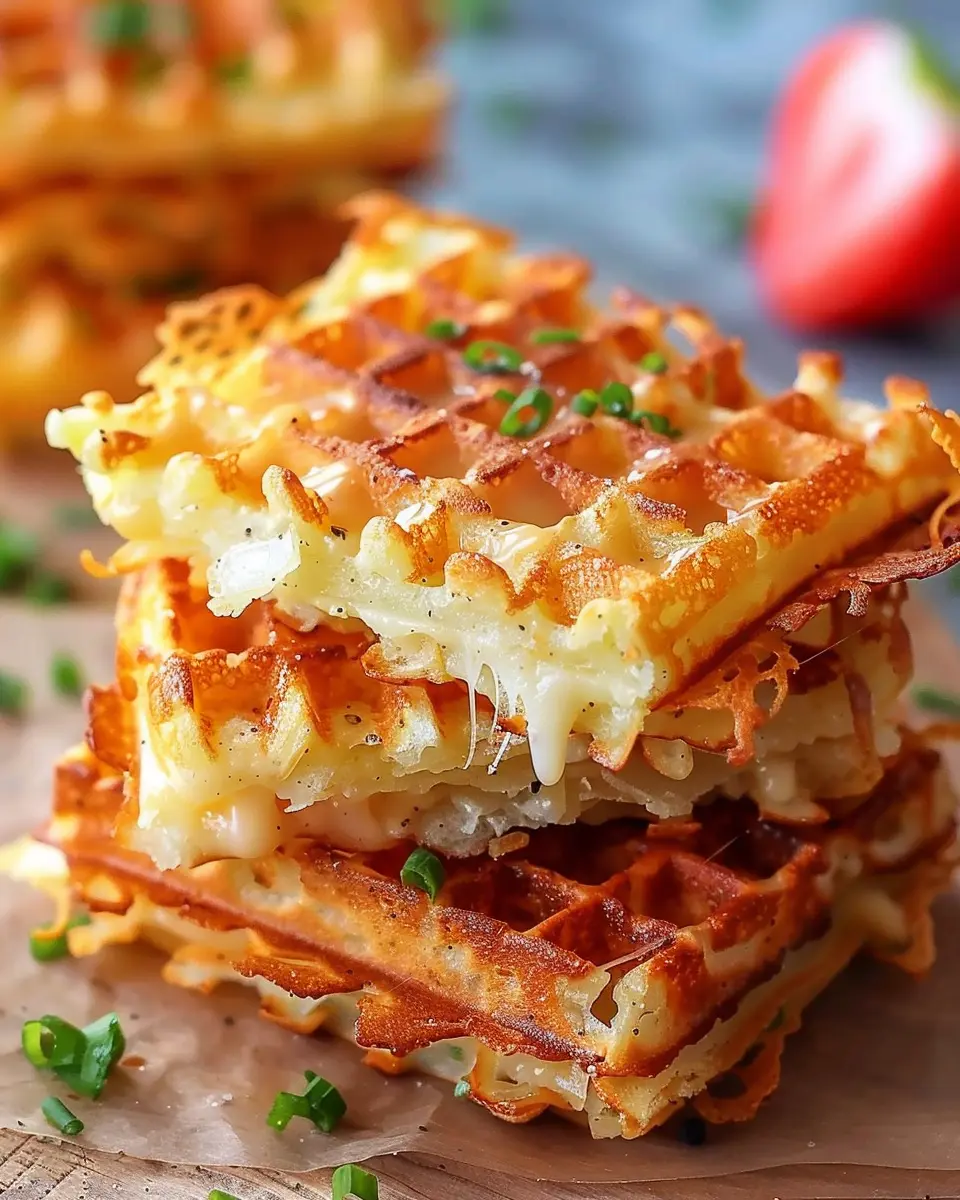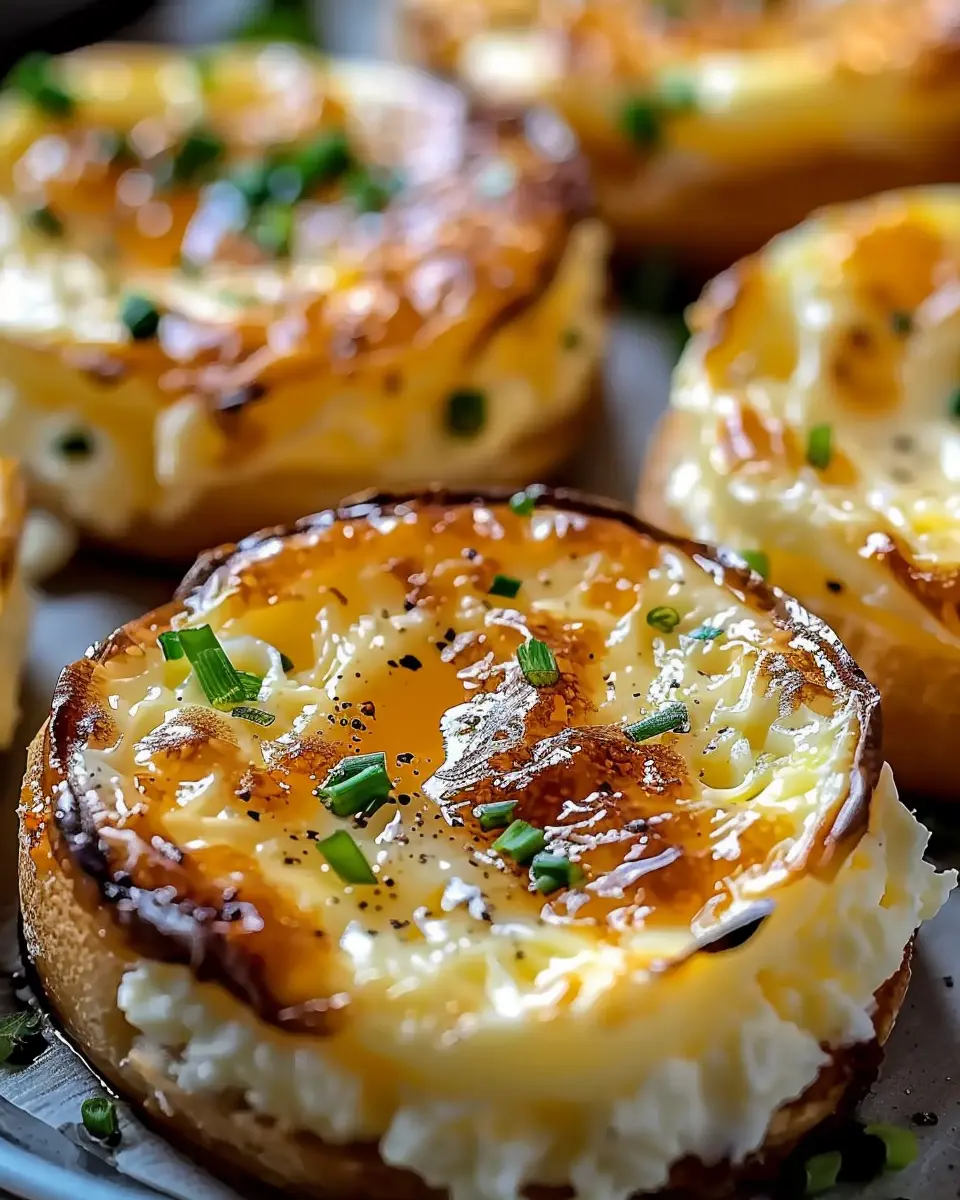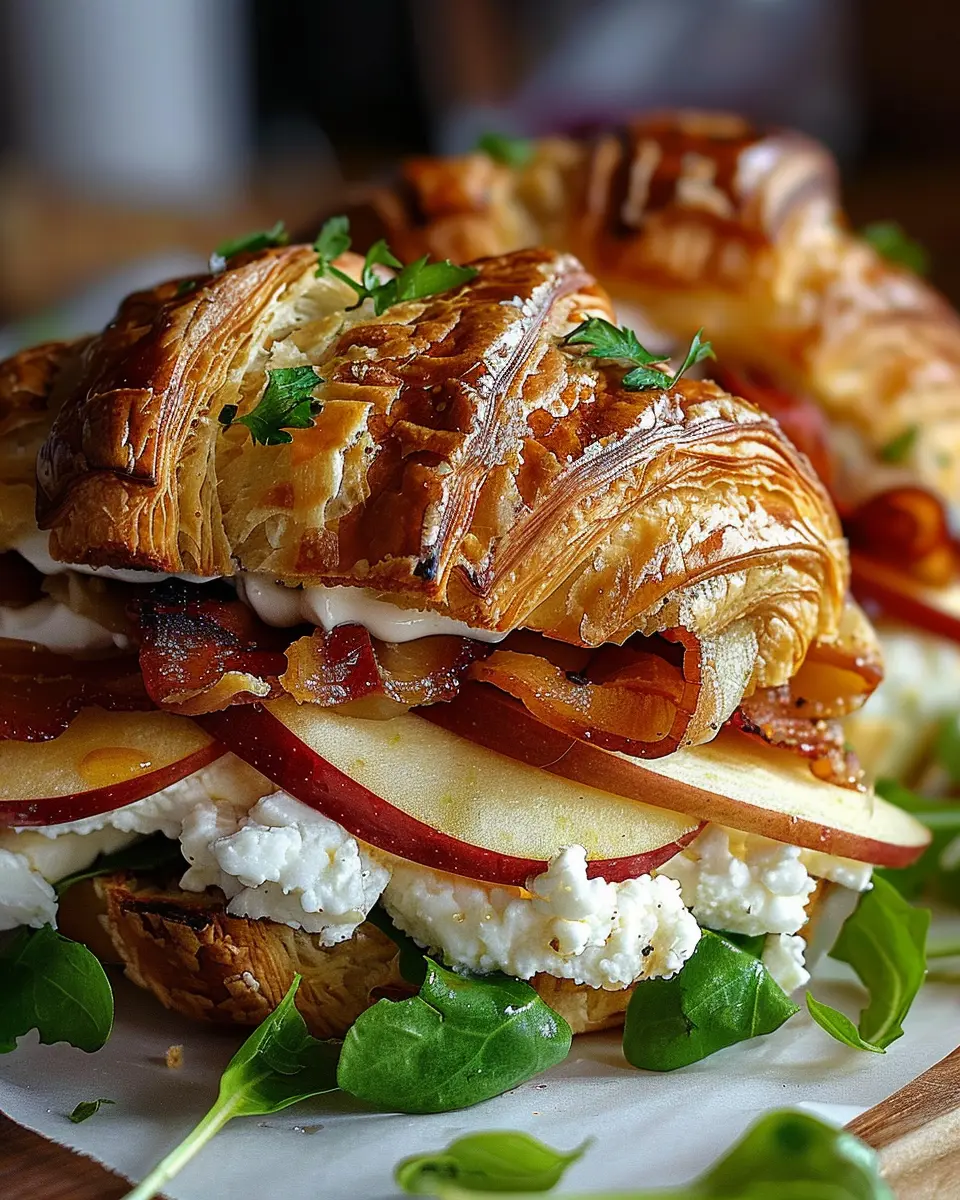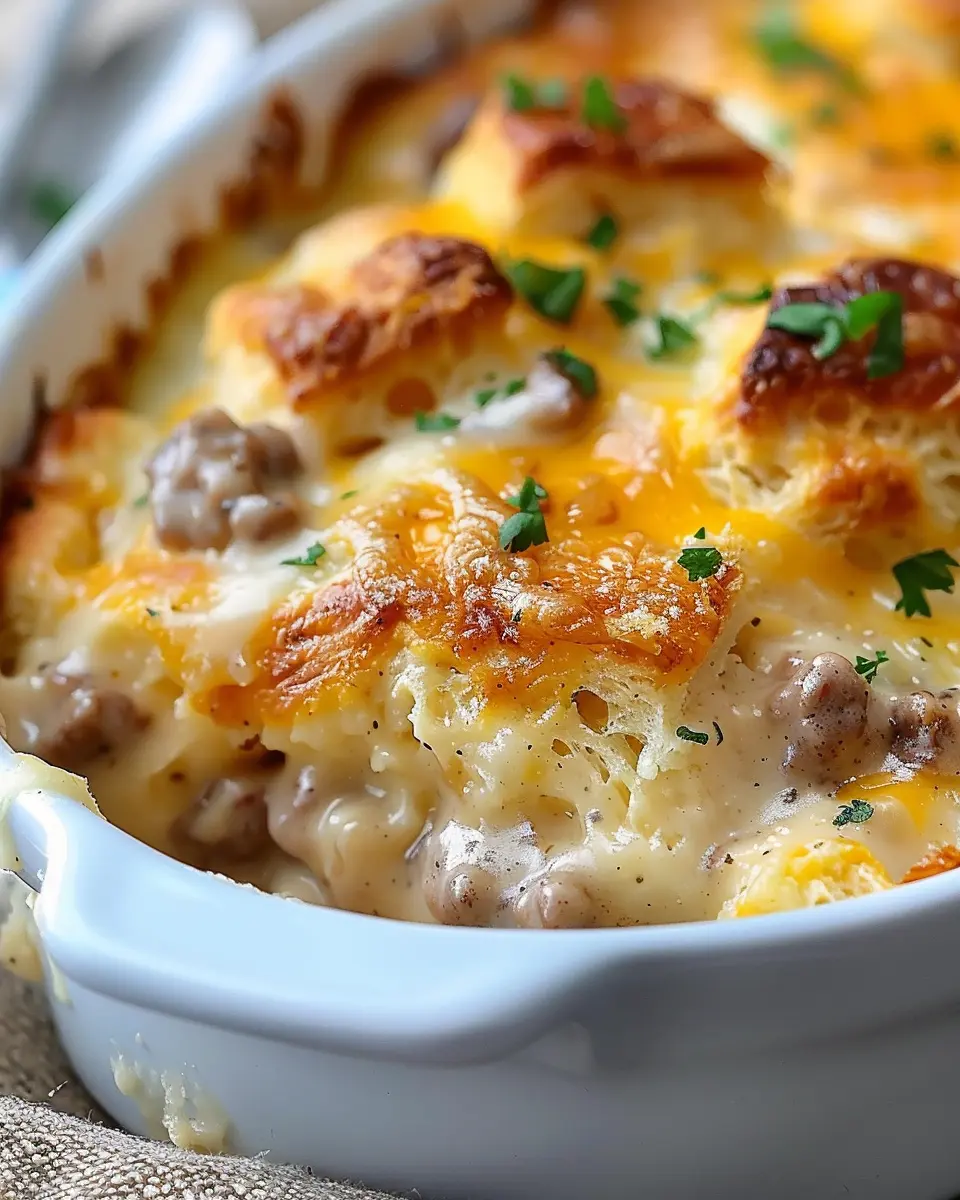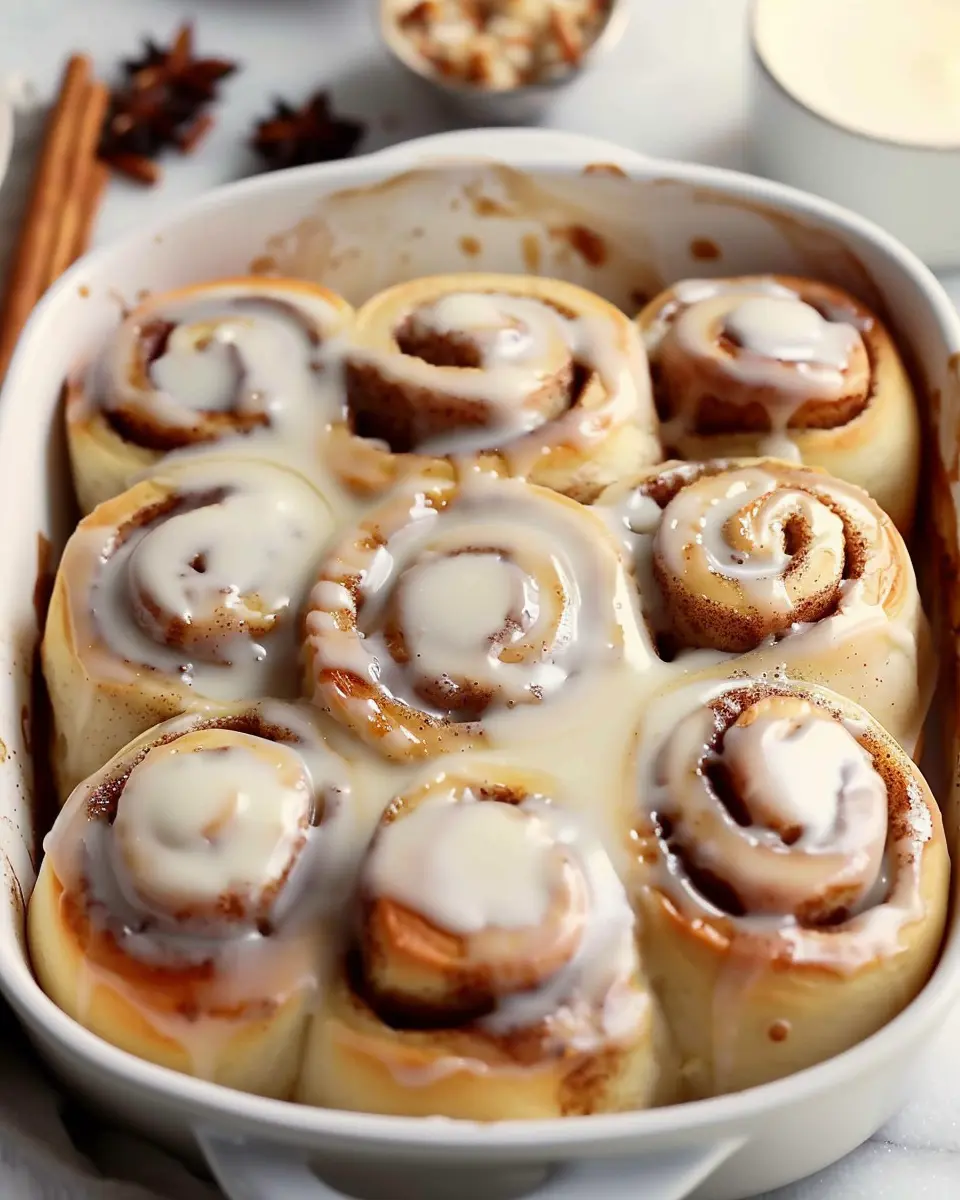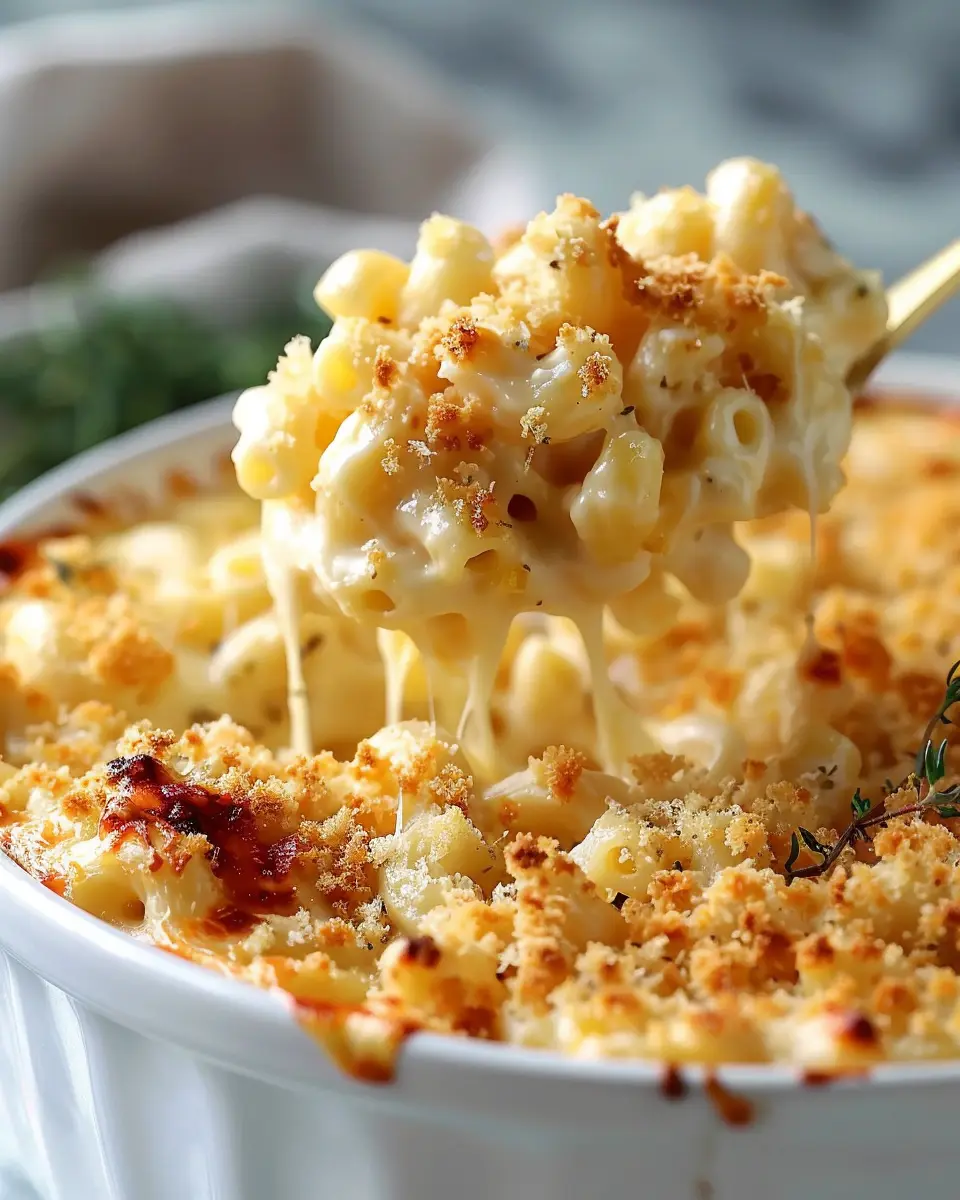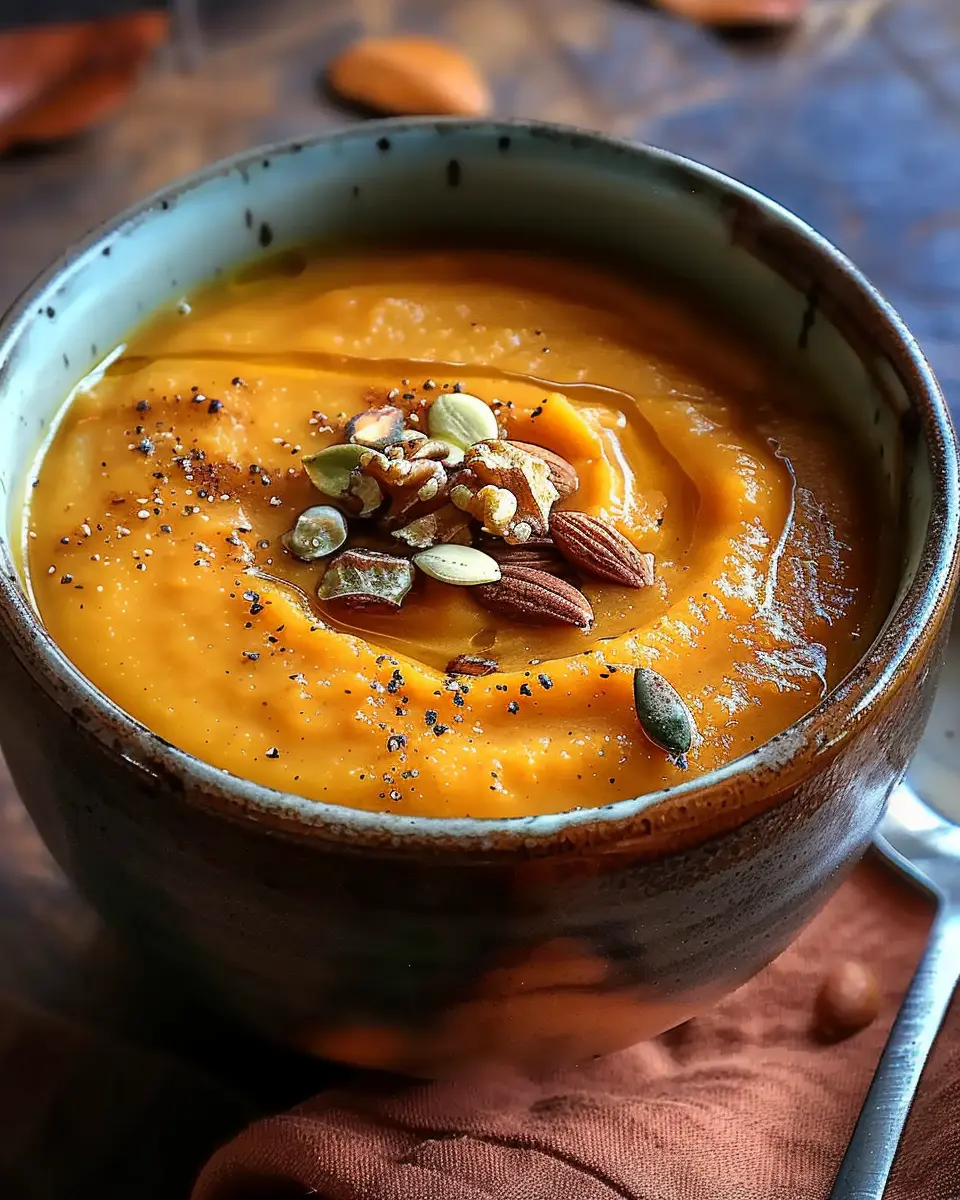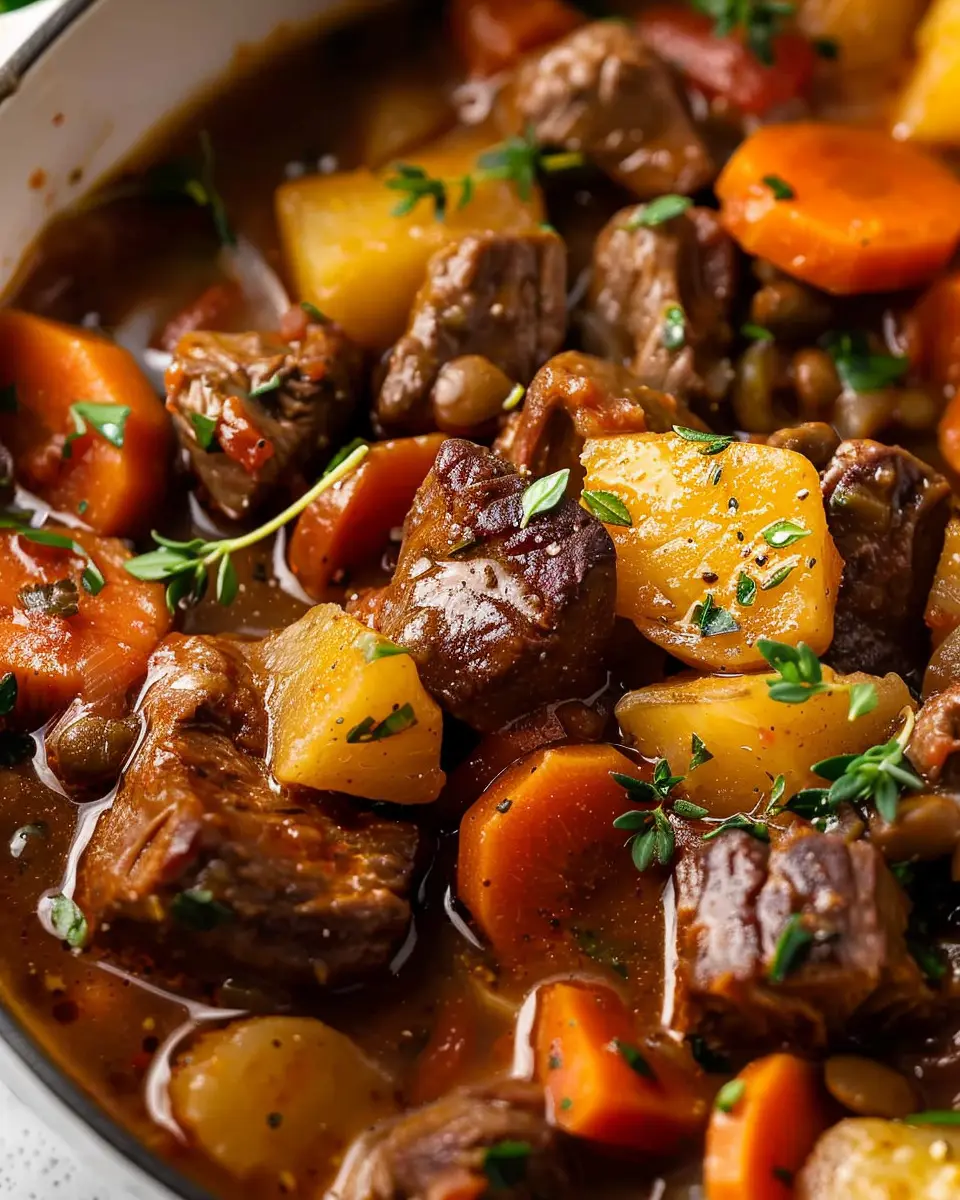Introduction to Orange Glazed Cornish Hens
When it comes to hosting a dinner or trying out something deliciously unique at home, Cornish hens are an excellent choice. Often viewed as miniature chickens, these birds pack a flavorful punch that makes them perfect for roasts, special occasions, or even casual weeknight dinners. So, why not impress your friends or family with equally mouthwatering orange glazed Cornish hens?
Why Choose Cornish Hens for Your Next Meal?
Cornish hens are not just smaller versions of their larger counterparts; they offer a range of benefits that make them a standout in any culinary repertoire:
-
Portion Control: Each hen provides a single serving, making it easier to manage portions and reduce food waste. No more debating about who gets the last piece!
-
Culinary Versatility: The mild flavor of Cornish hens allows them to soak up marinades and glazes beautifully, which means they can pair perfectly with the bright notes of an orange glaze. Imagine the vibrant aroma of citrus wafting through your kitchen as these cook!
-
Impressive Presentation: The visual appeal of a beautifully roasted hen plated nicely can elevate any dinner setting. It’s perfect for impressing guests at your next gathering.
Cooking Cornish hens can be intimidating, but it doesn’t have to be. If you’re looking for a recipe that is both elegant and easy to prepare, orange glazed Cornish hens are a perfect match. You can whip up this dish in relation to both busy weeknights or festive occasions. Plus, you get to introduce a flavor profile that is both sweet and savory, making it universally appealing.
For those interested in exploring the culinary world further, you may want to check resources like Bon Appétit or Serious Eats for additional tips on cooking poultry. Are you ready to bring a little flair to your dining table? Keep reading; the steps to create these delightful orange glazed Cornish hens will get your taste buds dancing!
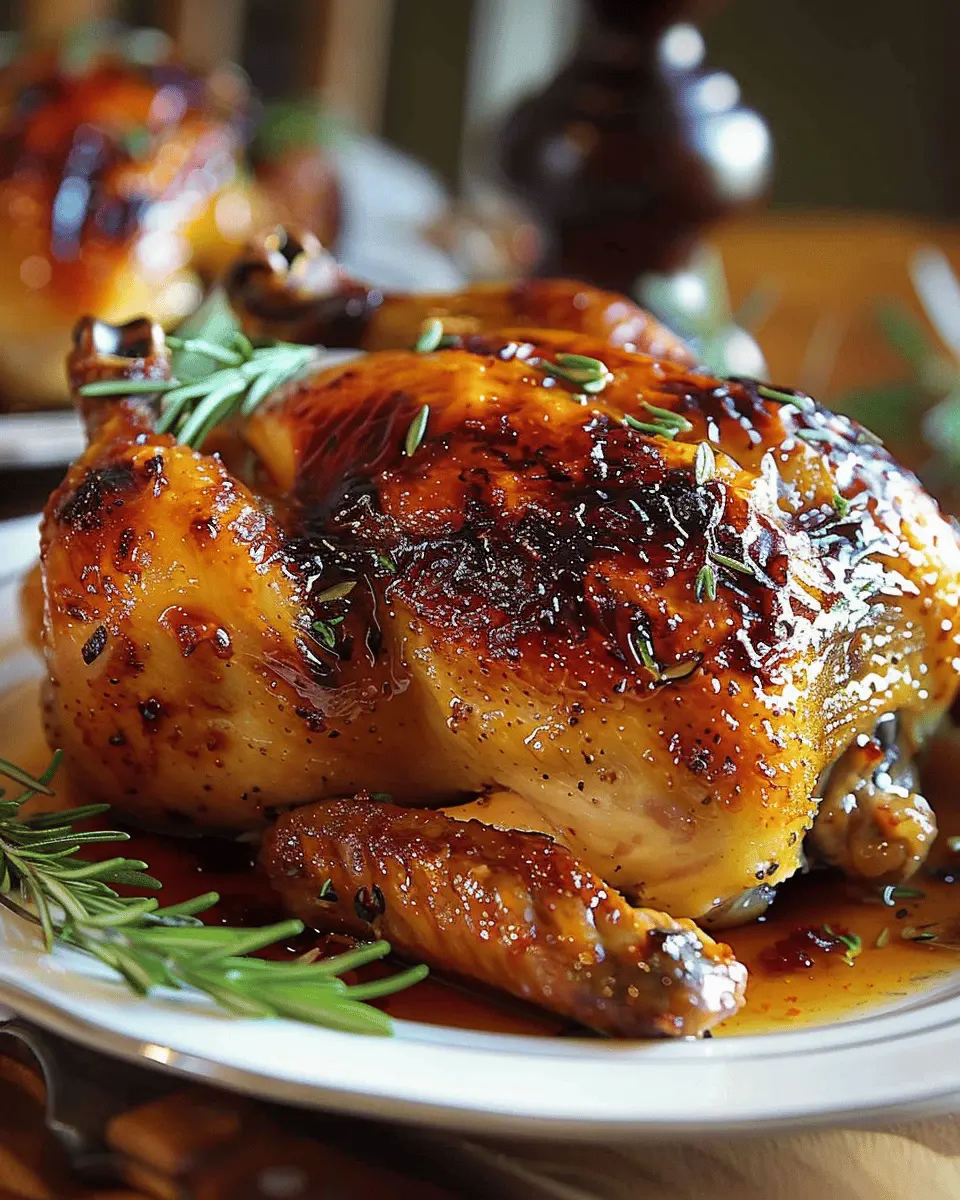
Ingredients for Orange Glazed Cornish Hens
Essential ingredients for a mouthwatering glaze
To create orange glazed Cornish hens that are bursting with flavor, you’ll need a few key ingredients that come together beautifully. Here’s what you should gather:
- Cornish Hens: Approximately 2 small hens (about 1-1.5 pounds each).
- Fresh Orange Juice: Around 1 cup for that vibrant citrus flavor.
- Honey: ¼ cup adds just the right amount of sweetness.
- Soy Sauce or Coconut Aminos: 2 tablespoons for a savory kick.
- Garlic: 2-3 cloves, minced, for depth.
- Ginger: About a teaspoon of fresh ginger, minced, to elevate your glaze.
- Olive Oil: 2 tablespoons to help blend everything together.
These ingredients will ensure that your glaze is rich, flavorful, and incredibly enticing.
Optional add-ins for extra flavor
If you want to get creative and add a twist to your orange glazed Cornish hens, consider these optional add-ins:
- Turkey Bacon: Crumbled on top for a smokey crunch.
- Chicken Ham: Diced for a heartier flavor.
- Herbs: Fresh thyme or rosemary can elevate your dish with fragrant notes.
- Chili Flakes: A pinch for some heat enhances contrast beautifully.
Feel free to experiment with different combinations based on your preferences! For more tips on flavor pairings, check out this guide on culinary herbs for some inspiration. Happy cooking!
Preparing Orange Glazed Cornish Hens
Cooking a delicious meal for your friends or family can feel daunting, especially when you’re aiming for something impressive like orange glazed Cornish hens. This dish not only looks stunning on the plate but also delivers a mouthful of juicy flavor that everyone will love. Let’s walk through the preparation together, step by step.
Preparing your Cornish hens
Start by selecting fresh Cornish hens; these birds can weigh around 1 to 2 pounds each. Look for ones with firm, plump skin and a pleasant smell. To prepare the hens:
- Thaw the hens: If they’re frozen, ensure you allow them enough time to thaw in the refrigerator, ideally overnight. This ensures even cooking.
- Clean and trim: Rinse the hens under cold water, removing any giblets found inside. Pat them dry with a paper towel.
- Seasoning the hens: Lightly season the cavity and exterior with salt and pepper. You could also add a sprinkle of garlic powder if you enjoy an extra kick. This basic seasoning complements the glaze we’ll create later.
Having well-prepared hens not only enhances the flavor profile but also ensures they cook evenly.
Mixing the orange glaze
Now, let’s dive into the star of the dish: the orange glaze. This sweet and tangy sauce is what sets this recipe apart. Here’s how to make it:
-
Ingredients:
-
1 cup fresh orange juice (about 2–3 oranges)
-
Zest of one orange
-
1/2 cup of honey or maple syrup
-
2 tablespoons soy sauce (or coconut aminos for a gluten-free option)
-
1 teaspoon minced garlic
-
A pinch of black pepper
-
Instructions:
- In a medium saucepan, combine the fresh orange juice, orange zest, honey, soy sauce, minced garlic, and black pepper.
- Bring the mixture to a gentle simmer over medium heat, stirring occasionally until it slightly thickens (about 10-15 minutes).
This glaze not only adds sweetness but also gives a beautiful glaze to your hens. If you’re curious about the health benefits of oranges, check out this resource from the USDA.
Applying the glaze to the hens
With your glaze ready, it’s time to get those hens dressed up! Here’s how to do it effectively:
- Preheat your oven to 375°F (190°C).
- Use a pastry brush to apply a generous layer of the orange glaze all over the hens, ensuring every inch is coated. Don’t forget the cavity!
- Extra tip: Place the remaining glaze in a small bowl for basting during roasting. This step is crucial as it helps build up that sticky, flavorful exterior.
Roasting the Cornish hens
Now it’s time for the exciting part—roasting! Here’s how to ensure your hens come out perfectly:
- Place the glazed hens on a roasting pan breast-side up. You can also add some chopped root vegetables like carrots and potatoes around the hens for a complete meal.
- Roast in your preheated oven for about 1 hour or until the skin is golden brown and crispy.
While they roast, be sure to baste the hens with the remaining glaze every 15-20 minutes. This enhances the flavor and ensures that irresistible caramelization.
Ensuring perfect doneness
To check for perfectly cooked Cornish hens, you’ll want to make sure they reach an internal temperature of 165°F (74°C). The best way to do this is by using a meat thermometer. Insert it into the thickest part of the thigh, avoiding contact with the bone.
Once cooked, allow the hens to rest for about 10 minutes before serving. This time will help the juices redistribute, ensuring each bite is moist and tender. Serve your orange glazed Cornish hens with your choice of sides and watch as your guests rave about this delightful dish!
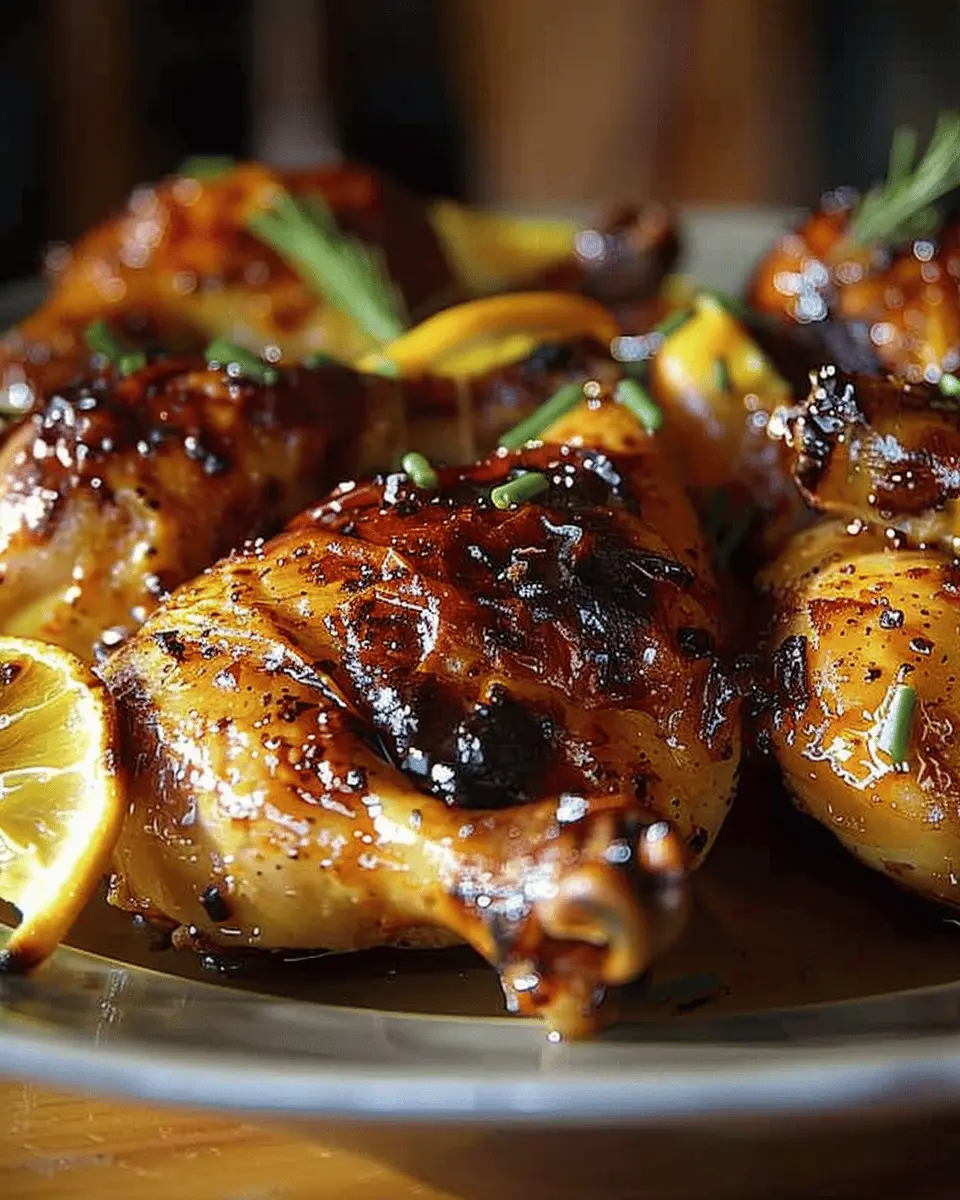
Variations on Orange Glazed Cornish Hens
Adding Spices for a Spicy Kick
Want to elevate your orange glazed Cornish hens? Consider adding a dash of spices to bring warmth and depth. A sprinkle of cayenne pepper or crushed red pepper flakes can provide that delightful heat. If you’re a fan of earthy flavors, try incorporating smoked paprika or cumin into your glaze. These spices can really enhance the citrus notes, creating a unique flavor profile. You might even add some fresh ginger for a zesty zing or a hint of cinnamon for a touch of sweetness. The goal is to have fun experimenting! After all, cooking should be about creativity.
Switching Up the Citrus Flavors
While orange is the star of this dish, you can switch things up by using other citrus fruits. Imagine using fresh lemons or limes instead of orange; they can add a tart brightness that complements the hens beautifully. Grapefruit can also be a fantastic choice—its bitterness balances well with sweetness, especially if you’re adding a sweeter component, like honey or brown sugar. Don’t hesitate to blend citrus flavors! A mixture of orange and lemon juice can yield a refreshing blend, ensuring your dish remains interesting. For more ideas on citrus substitutions, check out seasonal fruit guides on sites like The Spruce Eats or EatingWell.
By playing around with spices and citrus, you’ll create a dish that excites your taste buds, all while keeping the essence of those delicious orange glazed Cornish hens. So go ahead—get creative and enjoy!
Cooking tips and notes for Orange Glazed Cornish Hens
Perfecting the roast
Cooking orange glazed Cornish hens is all about getting that perfect roast! Start with a preheated oven at 375°F (190°C) for even cooking. A good rule of thumb is to roast for about 20 minutes per pound. Using a meat thermometer can help ensure doneness; the internal temperature should reach around 165°F (74°C). For added flavor, consider basting the hens with the orange glaze halfway through cooking.
Tips for a crispier skin
A beautifully crispy skin takes your dish to the next level. Here are some tips to achieve that:
- Dry the skin: Pat the Cornish hens dry with paper towels to remove excess moisture.
- Butter or oil: Rub your hens with softened butter or a drizzle of olive oil before applying the glaze. This will help achieve that desired golden hue.
- High heat finish: For the last 10-15 minutes of roasting, turn the oven up to 400°F (205°C) to crisp up the skin even further.
With these tips, your orange glazed Cornish hens will be both flavorful and visually stunning. For more insights into poultry cooking methods, check out Bon Appétit’s guide on roasting chicken for expert techniques. Happy cooking!
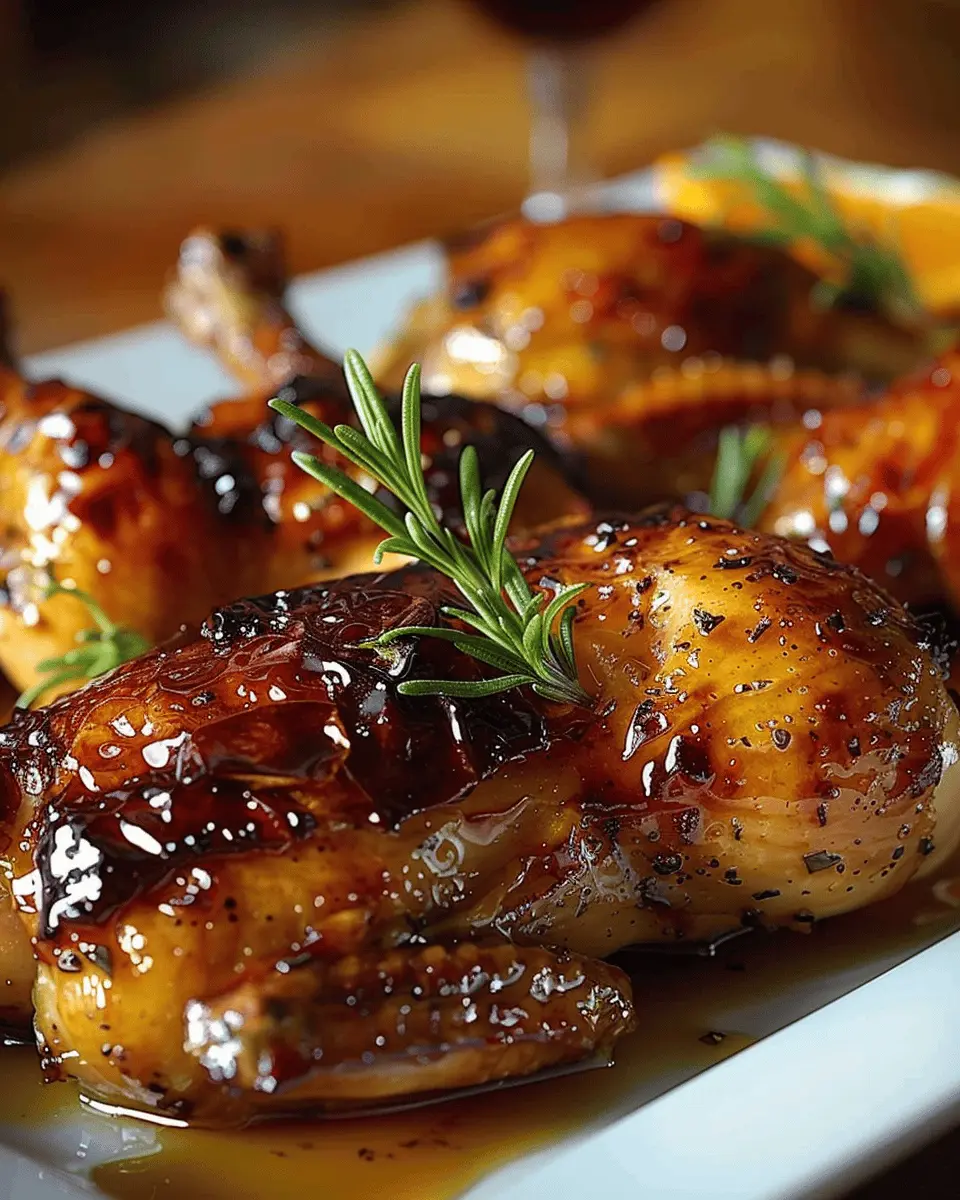
Serving suggestions for Orange Glazed Cornish Hens
Ideal side dishes to complement your meal
When serving orange glazed Cornish hens, you’ll want sides that balance the sweet and tangy flavors. Here are some great options to consider:
- Roasted Vegetables: Carrots, Brussels sprouts, and sweet potatoes bring warmth and color to your plate.
- Couscous or Quinoa Salad: Their light texture pairs beautifully with the richness of the hens. Consider adding citrus segments to reinforce the orange flavor.
- Garlic Mashed Potatoes: Creamy and comforting, these will soak up the delicious glaze.
For more inspiration on side dishes, check out resources like EatingWell or Bon Appétit.
Creative plating ideas for special occasions
Presentation can elevate any meal! For your orange glazed Cornish hens, consider these plating tips:
- Layering: Serve the hens on a bed of fluffy couscous, garnished with fresh herbs for a pop of color.
- Using Wooden Boards: Arrange the hens and sides on a rustic wooden board for a beautiful serve-yourself style.
- Edible Flowers: Adding a few edible flowers can make your dish stand out, especially for a festive gathering.
These small touches not only make your meal Instagram-worthy but also create an inviting atmosphere for your guests. Who doesn’t love a visually appealing dinner? Enjoy your culinary adventure!
Time breakdown for Orange Glazed Cornish Hens
When preparing orange glazed cornish hens, time management is essential for a smooth cooking experience. Here’s a quick breakdown to help you plan!
Preparation time
Getting everything ready takes about 20 to 30 minutes. This includes cleaning, seasoning, and preparing the glaze. Feel free to involve a friend; having some company makes the preparation more enjoyable!
Cooking time
The actual cooking takes about 60 minutes, depending on your oven and the size of the hens. Be sure to check the internal temperature; each hen should reach 165°F for ideal tenderness and safety.
Total time
Combining both preparation and cooking, you’re looking at around 90 to 100 minutes from start to finish. Perfect for a cozy dinner or an elegant gathering! For more tips on timing and preparation, check out The Spruce Eats for expert advice.
Whether you’re serving these orange glazed cornish hens for a special occasion or a weeknight treat, this timing will help your meal shine!
Nutritional Facts for Orange Glazed Cornish Hens
Calories and Serving Size
When you’re enjoying a delicious plate of orange glazed Cornish hens, it’s essential to keep track of what you’re consuming! A typical serving size is about 4 ounces, which comes in at roughly 250 calories. This hearty portion is perfect for a satisfying meal, especially when served alongside vibrant veggies or a light salad.
Key Nutritional Components
These flavorful hens are not just tasty—they also come packed with beneficial nutrients. Here are some key components to consider:
- Protein: Each serving provides about 30 grams, which is fantastic for muscle repair.
- Vitamin C: Thanks to the sweet orange glaze, you get a nice boost of vitamin C—about 15% of your daily value. This vitamin is great for your immune system and skin health.
- Selenium: This essential mineral, found in chicken, supports metabolism and overall thyroid function.
For more in-depth nutritional information, you can visit resources like U.S. Department of Agriculture’s FoodData Central. It’s always fascinating to learn what benefits are hidden within our favorite meals! When planning your weekly menu, considering these facts can help you make healthier choices while still enjoying the deliciousness of dishes like orange glazed Cornish hens.
FAQs about Orange Glazed Cornish Hens
Can I use chicken instead of Cornish hens?
Absolutely! While the recipe is centered around orange glazed Cornish hens for that elegant flair, using a whole chicken can work just as well. Just keep in mind that chicken will likely require a longer cooking time. Aim for about 1.5 to 2 hours, depending on the size. Use a meat thermometer to check for doneness; the internal temperature should reach 165°F (75°C). For an added twist, consider brining your chicken beforehand to keep it juicy and flavorful.
How do I store leftovers?
If you’re lucky enough to have leftovers, store them in an airtight container in the refrigerator. They will typically last for about 3-4 days. For longer storage, consider freezing portions in freezer-safe bags. When you’re ready to enjoy them again, simply thaw in the fridge overnight and reheat in the oven to maintain crispiness. Remember, reheating in the microwave might make the skin a bit soggy, so keep that in mind!
What can I substitute if I don’t have orange juice?
If orange juice isn’t on hand, don’t fret! There are several substitutes that work wonderfully. You could use other citrus juices like lemon or lime juice for a tangy twist. Alternatively, a combination of apple cider and a splash of vinegar can mimic the acidity and sweetness of orange juice. If you like a sweeter profile, try using pineapple juice—it pairs beautifully with the savory notes of the cornish hens.
For more tips on cooking and entertaining, check out sites like America’s Test Kitchen or Food Network for additional resources on poultry cooking techniques. Happy cooking!
Conclusion on Orange Glazed Cornish Hens
Recap and encouragement to try this recipe
In summary, orange glazed Cornish hens are a perfect blend of succulent flavors and vibrant presentations, making them an ideal dish for any occasion. This recipe combines the sweetness of orange with savory spices, resulting in a dish that is both comforting and sophisticated.
Whether you’re hosting a dinner party or simply want to treat yourself, these hens are sure to impress. So gather your ingredients and give this delightful recipe a try! You may also discover useful tips and variations by exploring this cooking guide for additional inspiration. Enjoy the culinary adventure ahead!
PrintOrange Glazed Cornish Hens: An Easy Indulgence for Home Cooks
Enjoy a delightful and easy recipe for Orange Glazed Cornish Hens that brings zest and flavor to your dinner table.
- Prep Time: 15 minutes
- Cook Time: 1 hour
- Total Time: 1 hour 15 minutes
- Yield: 4 servings
- Category: Main Course
- Method: Roasting
- Cuisine: American
- Diet: Gluten-Free
Ingredients
- 2 Cornish hens
- 1 cup orange juice
- 1/2 cup honey
- 1/4 cup soy sauce
- 1 teaspoon garlic powder
- 1 teaspoon ginger powder
- 1 tablespoon olive oil
- Salt to taste
- Pepper to taste
Instructions
- Preheat the oven to 375°F (190°C).
- In a bowl, combine orange juice, honey, soy sauce, garlic powder, and ginger powder.
- Place Cornish hens in a roasting pan and brush with olive oil, then season with salt and pepper.
- Pour the orange glaze over the hens, ensuring they are well coated.
- Roast in the oven for 1 hour, basting occasionally with the glaze.
- Allow to rest for 10 minutes before serving.
Notes
- For extra flavor, marinate the hens in the glaze for a few hours before cooking.
- Serve with steamed vegetables or rice.
Nutrition
- Serving Size: 1 hen
- Calories: 400
- Sugar: 30g
- Sodium: 500mg
- Fat: 10g
- Saturated Fat: 2g
- Unsaturated Fat: 6g
- Trans Fat: 0g
- Carbohydrates: 50g
- Fiber: 1g
- Protein: 25g
- Cholesterol: 70mg
